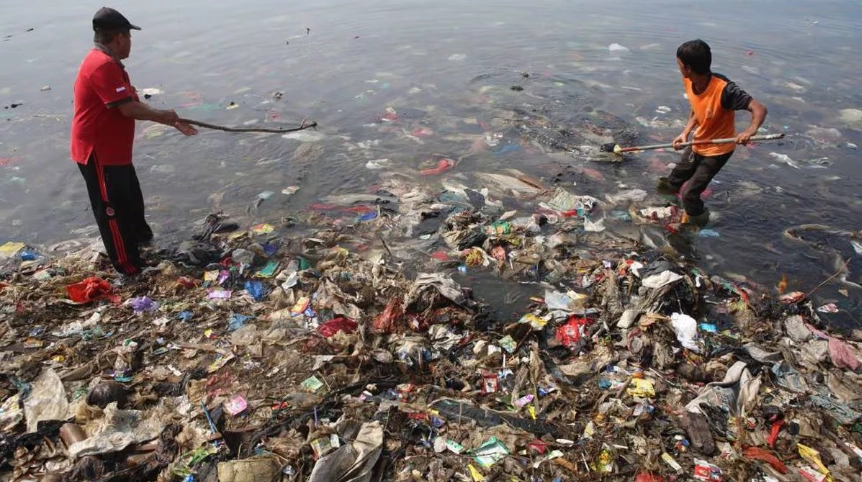Climate and environmental crises are not experienced in one single way. For each person, the reality is what is close and known, something that is collectively constructed based on beliefs, daily knowledge, social norms, and established routines located in a specific place. This means that the actions and strategies to face the challenges posed by climate and environmental change do not have one single social definition, so the responses to their challenges are also diverse.
Far from being true that the heterogeneity of perceptions about environmental risks is a consequence of the lack of availability or capacity to understand information, social sciences have shown that these differences are mainly due to matters linked to structurally rooted material and socio-cultural inequalities. Evidence tells us that the amount of information on environmental health risks is not related to how to act concerning problems that are identified.
Since the 1980s, there has been interest in understanding in what way risk perception is conceived in different audiences (academics, technicians, policymakers, general public) concerning environmental hazards generated by technological and industrial development and cultural patterns of consumption. Several authors have shown that the perception of environmental and health risks is largely constructed based on sociopolitical imposed definitions of risks. For example, from those who have the power to define problems in the political and technical decision-making spheres.
The “multiverses” that coexist about the definition of the climate and environmental crisis occur in different spheres. Scientists and political decision-makers perpetuate divergences in the ways of defining the problem and proposing possible solutions. As the Argentine political scientist and environmental activist Flavia Broffoni says, “Whoever defines the concept controls the debate”.
For example, in Uruguay, by the middle of 2023, the government decreed a water crisis defined by social movements, academic circles, and various self-convened demonstrations as a result of the “plundering” of water by hegemonic production models. This “water crisis” came to light as a result of the lack of drinking water, especially for small producers in the metropolitan area, as had never happened before in the country. Nonetheless, this issue has been denounced for years.
Heterogeneity of definitions of environmental risks
Reality is full of meanings based on socially validated knowledge and is constructed under power structures. The definition of environmental and climate risks is a field of disputes where technical and popular knowledge intersects with interests, power relations, and the legitimization of knowledge by societies themselves. Everything depends on how we define progress, development, technology, well-being, nature, and participation, among other issues.
Problematizing climate and environmental crises implies socially defining the risks associated with them in competition with the risks linked to economic growth and scientific-technical progress. How to deal with the consequences of increasingly extreme climatic events, the lack of access to quality environmental services for life (water, air), or the availability of space for growing food are framed in risk selection processes defined by science or politics. Not only what we know matters, but what we can do with what we know, individually and collectively.
The answers to what the risks and problems are and how they should be addressed are diverse and often contradictory. There are debates about what should be the criteria for assessing environmental risks, depending on the groups or social referents being analyzed. The imposition of narratives concerning these definitions of risks and their consequences has significant economic, social, and environmental impacts. These impositions occur both within countries among socioeconomically hegemonic groups and among “more developed” countries or regions on others that are also burdened by the development model in its consequences.
The causes and consequences of global threats, such as the proliferation of diseases and climatic events, are distributed unequally across the planet, as are the resources to deal with them.
Inequality and alternatives
There is a little-mentioned debt in technical and political spheres that is related to responsibilities and causes linked to multiple inequalities that are generated and deepened in this context of the climate crisis. Despite the seriousness of the situation that the planet is going through socio-environmentally, many countries have not yet ratified the Escazú Agreement (which establishes broad social participation, justice, and access to information on environmental issues as an international standard) and few have considered the socio-ecological debt. On the contrary, recently, the climate of violence against environmental activists and movements has worsened in the region, and the conditions of the most socioeconomically disadvantaged populations continue to deteriorate.
Some academic circles have moved away from the purely scientific knowledge-generating scheme to propose and seek concrete transformations to address multiple inequalities. Those who advocate the Ecosocial and Intercultural Pact of the South, for example, argue that the energy, social, and digital transition should be designed from the territories that bear the material, cultural, and environmental sacrifice of saving the planet.
In a context where the definitions of the environmental crisis are plural, where the excess of information does not solve problems, and where there are different geopolitical responsibilities concerning planetary risks, it is necessary to discuss the mechanisms that could reverse social inequalities that reproduce and deepen on the planet. This implies the acceptance of multiple realities that coexist around the subject, taking academic and political narratives as constructions loaded with meaning, making visible the structures that perpetuate the mechanisms of inequality, and giving space to alternative solutions with social license.
*Translated by Janaína Ruviaro da Silva from the original in Spanish.












